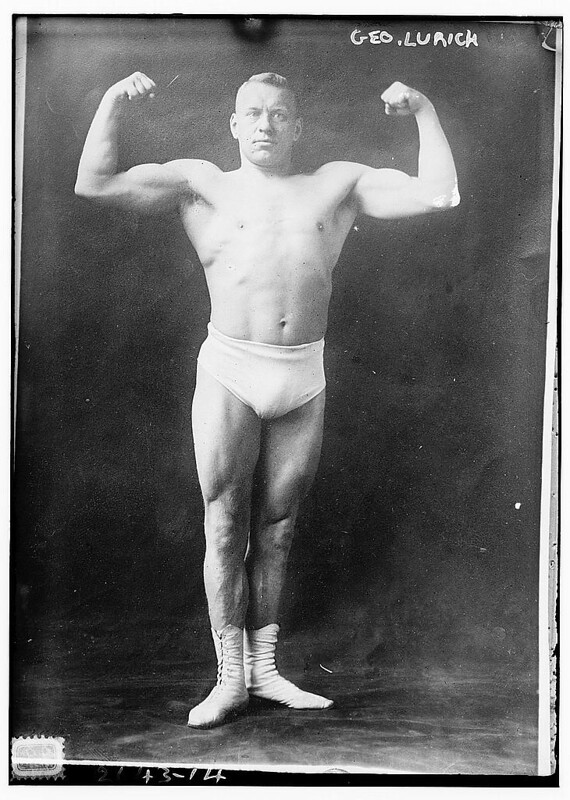THOMAS DUNBAR (6)
By:
February 6, 2023

Gertrude M. Barrows, who would later write under the pen name Francis Stevens, published “The Curious Experience of Thomas Dunbar” in The Argosy in 1904. She was nineteen; this was her first proto-sf story. It’s one of the earliest tales of a lab-created superman — and most likely the first such story by a female author. HiLoBooks is pleased to serialize it here for HILOBROW’s readers.
ALL INSTALLMENTS: 1 | 2 | 3 | 4 | 5 | 6 | 7 | 8.
He dropped my hands and fell quickly to his knees on the floor, his head bent, and began searching — feeling about in the shadows of the engines.
“Here — you there!” he cried to one of the men. “A light here! God! If it should be lost now — after all these years — all these years!”
“What?” said I stupidly.
“The new element,” he cried impatiently. “Stellarite, I call it. Oh” — glancing up quickly — ”of course you don’t know. That little piece of metal I gave you to hold — the iridescent cylinder — don’t you remember?”
He spoke irritably, as if it was almost impossible for him to restrain himself to civil language.
“Oh, yes — that.” I looked around vaguely. “Why, yes, I had it in my hand — of course. I must have dropped it when I grabbed the fly-wheel. It’s on the floor somewhere probably; but, if you don’t mind, could I have something for my hands? They hurt pretty badly.”
Indeed, the air was full of black, swimming dots before my eyes, and iridescent cylinders had very little interest for me just then.
He almost snapped at me.
“Wait! If it’s lost — but it couldn’t bel Ah, the light at last. Now we can see something.”
Still he was hunting, and now the men were helping him. I looked on dully.
Then an unreasonable anger seized me at their neglect — their indifference to my very real agony. I leaned forward, and, in spite of the added pain the raw flesh of my hand gave me, I took hold of Lawrence’s collar and started to shake him.
He felt curiously light — rather like a piece of cork, in fact. I picked him up from the ground as you would a kitten and held him at arm’s length.
Then suddenly I realized that what I was doing was somewhat unusual, and let go of his collar. He lit on his feet like a cat.
I expected anger, but he only said impatiently, “Don’t do that — help me hunt, can’t you?” quite as if it were an ordinary incident.
The queerness of it all came over me in full force; I felt as if I were in a dream.
I stooped down and helped him search. But it was no use. The little cylinder of stellarite seemed to have disappeared.
Suddenly Lawrence rose to his feet, his face, whose multitudinous wrinkles had a moment before been twitching with mingled triumph and despair, wiped clean of emotion, like a blank slate from which all significance has been erased.
“Come, Mr. Dunbar,” he said quietly, “it is quite time those hands of yours were seen to. You, Johnson, Duquirke, go on hunting. But I’m afraid it’s no use, boys. That vat of acid is too near.”
“You think ——”
“I’m afraid it rolled in,” he said.
I was silent, dimly conscious that I stood, as it were, just inside the ring of some great catastrophe whose influence, barely reaching me, had this little wrinkled man in the grip of its vortex.
RADIUM AGE PROTO-SF: “Radium Age” is Josh Glenn’s name for the nascent sf genre’s c. 1900–1935 era, a period which saw the discovery of radioactivity, i.e., the revelation that matter itself is constantly in movement — a fitting metaphor for the first decades of the 20th century, during which old scientific, religious, political, and social certainties were shattered. More info here.
SERIALIZED BY HILOBOOKS: James Parker’s Cocky the Fox | Annalee Newitz’s “The Great Oxygen Race” | Matthew Battles’s “Imago” | & many more original and reissued novels and stories.
